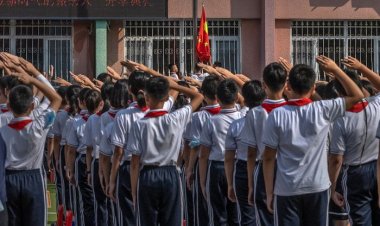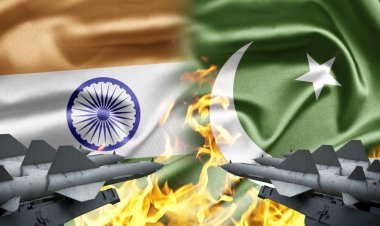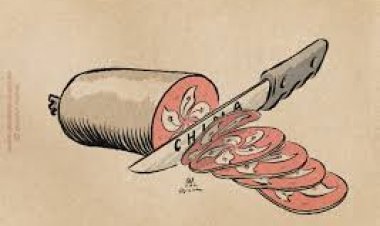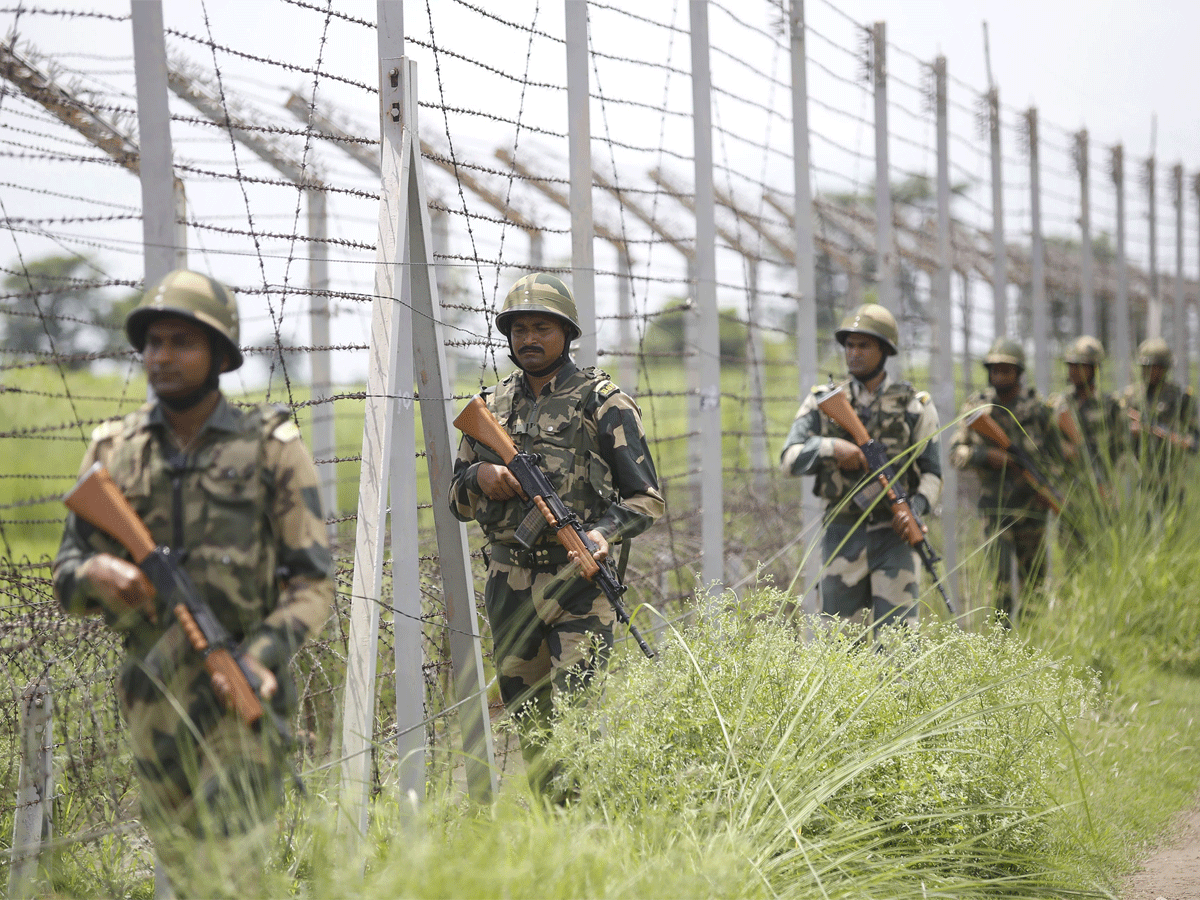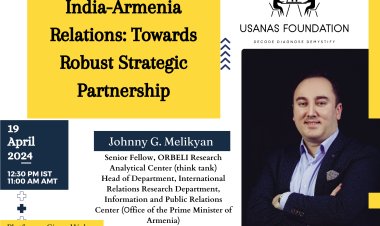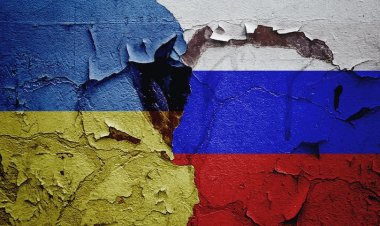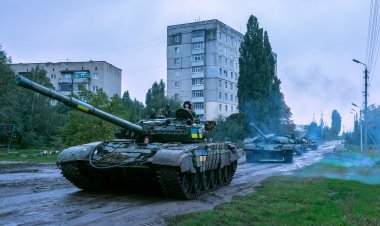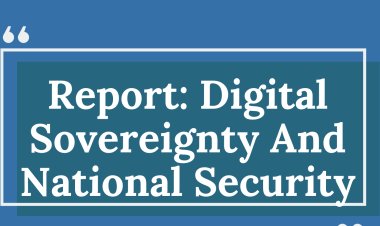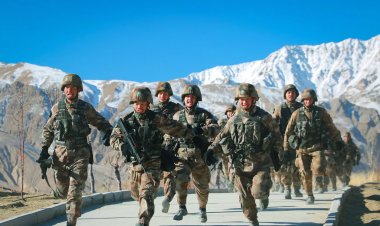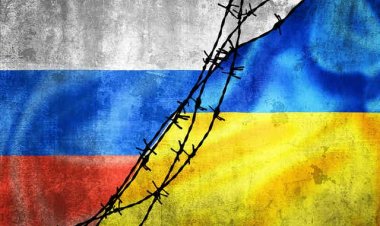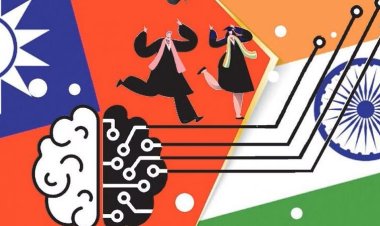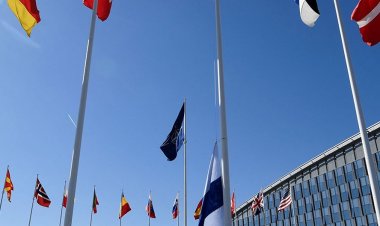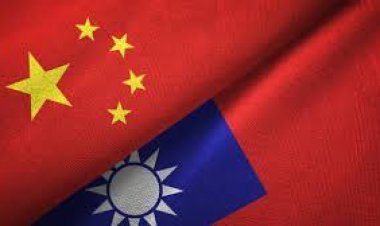Afghanistan: A Year under the Taliban
On the 15th of August 2021, the Taliban captured Kabul, the seat of the government in Afghanistan, as the United States military withdrew its troops from the country. The article looks back on the major consequences of the event and how the year has been for the country
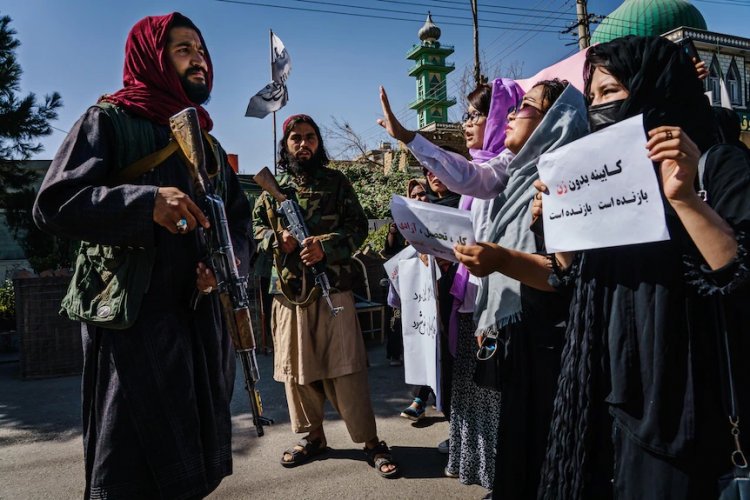
Explainer
By Aishwarya Brahme
On the 15th of August 2021, the Taliban captured Kabul, the seat of the government in Afghanistan, as the United States military withdrew its troops from the country. The article looks back on the major consequences of the event and how the year has been for the country.
The US- Taliban Agreement 2020:
The fall of the dominoes started with US President Donald Trump signing a peace and ceasefire agreement with the Taliban on February 29, 2020. The agreement was signed by the Islamic Republic of Afghanistan which is a member of the United Nations and recognized by it as a sovereign state under international law. The 2020 Agreement decided on four major points:
- A guarantee that Afghan soil and resources will not be made available to terrorist organizations or individuals against the security of the United States and its allies.
- The United States and Coalition armed forces will be withdrawn from the territory of Afghanistan. A timeline was provided for the same.
- Negotiations between the team of the Islamic Republic, the United States, and the Taliban resulted in a political settlement detailed in the agreement, securing the safety of Americans and American interests.
- A permanent and comprehensive ceasefire of the conflict.
Post the US-Taliban agreement, the Taliban stopped its attack on Americans. However, they steadily stepped up their strike on Afghan troops, depleting resources and inflicting human casualties.
Timeline of how the Taliban takeover happened:
In April 2021, US President Joe Biden announced that around 3500 troops remained on the ground in Afghanistan and they will withdraw by September 11. It will mark the end of the American era in the country. This news was received with mixed criticism and mostly with concern of large-scale human rights violations once there is no longer a US presence. Through May to August, the Taliban kept up their attack on Afghan forces and districts fell to the regime rather swiftly. In many regions, armed forces and local troops put up a fight. But without help from their American counterparts, the violence did not end in their favor. By mid-August as final American troops were wrapping up and leaving, the Taliban gained control of most of the country and major cities and trade hubs.
It was however on August 15, 2021, that the tables in Afghanistan officially flipped and the fate of the country suddenly became uncertain. President Ashraf Ghani (recognized Internationally) fled the country along with a few ministers of his government. It was in the early hours that the Taliban launched their attack on Kabul and strolled into the seat of the government with resistance that they easily overcame. Even as some factions of the troops fought valiantly in certain valley regions (Kandahar), the Taliban had won their battle and the crown.
The next day, thousands of civilians flocked to the Kabul International Airport in hopes of getting a way out. Unfortunately for many, the doors to the free world had already closed. Almost overnight the economy collapsed. It became impossible to afford Food, medications, and basic supplies as supply chains.
Formation of the Taliban Government :
The Taliban declared the country as an ‘Islamic emirate’ and formed an interim government at the start of September 2022. Many sovereign states hesitated to recognize the government and the leadership. But that did nothing to hinder the Taliban government's takeover of the country.
The interim government, consisting entirely of men, was to be led by Mullah Mohammad Hassan Akhund, one of the movement's founders, who is on a UN blacklist. During the takeover, the Taliban announced that they want to form an inclusive government and ensure all rights and freedoms within the ambit of the Islamic law to all its citizens.
The formation of an interim government, appointing ministers, and handling the domestic and international media was a pre-planned set of events. It was years in the making and all parts of the machinery worked just as they were supposed to, to ensure a smooth transition of power to the Taliban without risking suspicion, outrage, and interference by the international community.
As of August 2022, the Taliban has not been recognized as the official government of Afghanistan even though its de facto rules the national government.
Consequences/ Effects faced by the Afghans in the past year:
Human Rights Violations:
The Taliban takeover propelled Afghanistan into a Humanitarian catastrophe and 20 years of Human rights gains have been dismantled at a staggering rate. During the period of signing the 2020 Agreement and the mid-August takeover, due to the fighting with government forces there was a rise in civilian casualties by explosive devices in residential areas, mortars, airstrikes, etc. including unlawful killings, enforced disappearances. Women and children comprised most of the civilian casualties. Within a week of forming the interim government, the Taliban administration rolled out policies and regulations regarding women and girls. During the transition, the Taliban made statements to the international media about supporting women’s rights and education for girls. However, the measures announced cut off women from seeking employment, education, and the right to peaceful assembly. They also sought out high profiled women and curtailed their freedom of movement to their homes. In mid-September, secondary schools were allowed to open but only for the boys. The Taliban eliminated the Ministry for Women’s Affairs and repurposed its building as the Ministry for the Propagation of Virtue and Prevention of Vice, an institution mandated to enforce rules on citizens’ behavior, including how women dress, and when or whether women can move outside the home unaccompanied by a male relative.
Drugs Trafficking:
One of the major sources through which the Taliban funded its activities was through drug trafficking. Afghanistan is the largest producer of opium in the world producing 90% of the world's illegal opium. The Taliban has a long history of benefitting through opium trade profits and imposing a ban on opium poppy to gain political legitimacy in the country. Vanda Felbab-Brown has written on Afghanistan’s long-winding relationship of survival and sustenance through the Opium trade.
The local and sparsely populated tribes earned their livelihood by growing opium poppy. It took years for small communities and trade routes to form, but many subsidiary businesses emerged along the way to provide for the drug trade.
In April 2022, the Taliban announced a ban on the cultivation of Opium poppy during its harvesting season, warning that farmers could be jailed, and their crops burnt for violations. This is being viewed as a clever move by the Taliban to replicate the results of its 1994 ban - gain internal political legitimacy, to create a labor force from the economic refugees that they can control, to undermine the motivation of the local population in counter insurgents and to also profit from counter-drug trading policies.
Another reason for the move is the need to gain International legitimacy/ State Recognition and Financial Funding which poured crucial money into the economy. Through this ban, it looks to appease countries affected by the Opium trade (Russia, Iran) and to rally the support of the International community for the local population and to establish “sustainable” government policies.
The Taliban did not expect to go bankrupt from this ban and it has not. It continues to receive funding from external sources - illicit illegal goods trade through Pakistan, Saudi Arabia, etc. But the ban has adversely affected the local population (farmers) who barely earned enough to support their large families and completely depended on the quality and quantity of the harvest. Without immediate alternative means of income, landowners have ended up with debts and farm workers in bonded labour. Many who were unable to pay debts have fled into Pakistan as their last resort.
Freedom of Media:
- The Afghan media has always been under threat from the Taliban. From the beginning of the year, many deadly attacks were carried out on high profiled journalists. After the Taliban takeover, nearly 70 percent of all Afghan media outlets closed, and others were operating under threat and self-censoring.
- The Taliban’s crackdown on freedom of expression has targeted human rights defenders and civil society activists, many of whom have been harassed, threatened, detained, and even killed as a direct result of their human rights work.
Women’s Rights:
Since its inception, the Taliban movement had placed regressive restrictions on Women’s rights and existence - health and education, curtailed freedom of movement, expression, and association, and deprived many of earned income. The takeover and formation of a “legitimate government” have only exacerbated the abuses, which had taken two decades of work by Human rights organizations to identify and systematically resolve.
Due to the sudden deprivation of their rights, Afghan women and girls face a lack of access to food, supplies, transportation, books, and mainly a source of income. For many households, women were the primary wage earner. But the Taliban employment policies restrict their right to work in any industry other than healthcare and primary education. Even then, they are not being paid due to the financial crisis.
Response from the International Community over the year:
The International Community was taken by shock with the ease and speed with which the Taliban took over the country. In the days leading up to the fall of Kabul, there was intense dialogue as to the change in the geopolitical power dynamics in the region and the change in the life of ordinary citizens of the country.
As soon as the Taliban formed a government, Western countries cut humanitarian aid and other financial assistance it provided to the government. They also voiced their concerns for the people of Afghanistan and the subsequent Human Rights Violations that were expected. Various financial sanctions have been placed on Afghanistan through the IMF, World Bank (which has suspended all its development projects in the country ), etc. Afghan Central Bank’s assets in the New York Federal Reserve and other US institutions have been frozen.
While mostly the Western countries followed the lead of the United States to condemn the takeover, voice concern, and pledged to not engage with the Taliban government due their history of Human Right Violations, a few countries chose to abstain from making extreme statements. Countries like India, Iran, Russia, Saudi Arabia, Pakistan, and Russia tried to remain neutral through the initial days.
As the pandemonium subsided and the uproar in the international media waned, there has been a growing trend of engagement for the purposes of strictly business. The Taliban invited their 6 international partners (China, Russia, Turkey, Iran, Pakistan, and Qatar) for their government inaugural ceremony. At the Tashkent Conference in July 2022, almost 30 countries along with the UN, the EU, and the United States interacted with the Taliban. While most attendees called for an inclusive political process, no one pushed for recognition of the Taliban’s regime now.
The initial watchful and scrutinizing approach of the Western media subsided to accommodate the succeeding news cycle and paved the way for the Taliban to strengthen its foundations in the government institutions.
Conclusion
It is difficult to estimate the magnitude of abuses suffered by the Afghan population from the outside due to the curbed presence of International media and the security issues that come along with it. Even though Canada, the USA, the EU, the UK, and several other countries evacuated thousands of Afghans with whom they worked directly through the government of NGOs, thousands more remain at risk in the country - human rights defenders, journalists, women activists, lesbian, gay, transgender, queer people who do not have a safe of exiting the country.
The international attention to Afghanistan is sorrowful in nature. Even though there have been huge donations in the form of emergency aid, it is a short-term fix which has a difficult way of reaching the Afghans in need. For the purpose of business, countries have opened communication channels with the Taliban as both parties are in need of trade and resources. However, it can be clearly seen that the International community is utterly powerless and a mere spectator to a well-executed triumph of the Taliban and the crumbling of Afghan society.
Disclaimer: This paper is the author's individual scholastic contribution and does not necessarily reflect the organization's viewpoint.

 Aishwarya Brahme
Aishwarya Brahme 